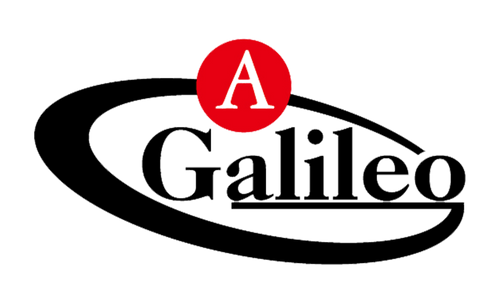Ben Hogan's Success Story: The Power of Deliberate Practice and Galileo Golf Cage

“A world in which deliberate practice is a normal part of life would be one in which people had more volition and satisfaction.” —Karl Anders Ericsson, Peak
Ben Hogan practices at home using a golf batting cage

Ben Hogan, an iconic figure in the realm of golf, earned renown for his exceptional skills and unwavering dedication to the sport. His entry into professional golf was marked by resilience and an unrelenting pursuit of excellence. Hogan expressed, "I can't wait to get up in the morning so I can hit the links. I'll be out at the practice tee at the crack of dawn, hitting balls for hours, take a break, and then continue training."
Born in 1912, Hogan discovered his passion for golf early in life. Despite facing numerous challenges, including financial constraints and the Great Depression, his determination led him to turn professional in 1930. For Hogan, each practice session held a distinct purpose. Reports suggest that he spent years meticulously breaking down every phase of the golf swing and experimenting with new methods for each stage, resulting in nearly perfect outcomes. He crafted one of the most refined golf swings globally.
Hogan concluded his professional career with nine major championships, securing a fourth-ranking. During his peak, fellow golfers simply attributed his extraordinary success to "Hogan's secret." His meticulous approach to the game and steadfast commitment to improvement set a new standard for aspiring golfers.

Hogan's transition to deliberate practice, characterized by focused and purposeful training, played a pivotal role in shaping his success. This strategic shift in his training regimen laid the foundation for his extraordinary accomplishments on the golf course.
What is Deliberate Practice?
“Engaged in the creative process we feel more alive than ever, because we are making something and not merely consuming, masters of the small reality we create. In doing this work, we are in fact creating ourselves.” —Robert Greene, Mastery
Deliberate practice is a purposeful and structured form of training that targets specific improvements. It involves pushing one's boundaries and honing skills through focused repetition and feedback.
Renowned athletes like Tiger Woods and Serena Williams have embraced deliberate practice to enhance their performance consistently, proving its effectiveness in achieving exceptional results in sports.
The primary challenge in deliberate practice lies in maintaining focus. While consistent practice is crucial initially, there's a tendency over time to overlook small errors and miss daily opportunities for improvement. This is because the human brain naturally transforms repeated behaviors into automatic habits. For instance, tasks like tying your shoes, which required careful thought initially, become automatic after numerous repetitions.
Deliberate practice stands out from routine training by prioritizing quality over quantity. It emphasizes focused efforts, skill refinement, and continuous learning, making it a potent strategy for achieving mastery in golf.
The key distinction between doing and practicing is that deliberate practice involves doing something in a way that makes us better at it or, at least, with that intention. It requires a clear awareness of the specific components of a skill to improve and how to enhance them. Unlike regular practice, which can become almost mindless through repetition, deliberate practice is a laser-focused activity demanding unwavering attention to whether each moment contributes to improvement.
Why choose Galileo golf cage for practice?
A golf hitting cage, such as the Galileo golf cage, provides a controlled setting for honing skills. It offers the convenience of practicing at home, shielding from external elements while enabling uninterrupted training sessions.

Utilizing a golf hitting cage facilitates precise analysis and improvement of swing mechanics and ball control. This controlled environment fosters disciplined practice, leading to enhanced performance on the golf course.
The Galileo golf cage integrates technology to provide data-driven feedback, allowing golfers to analyze their performance with precision. This valuable insight empowers individuals to make informed adjustments and track their progress effectively.
How to implement deliberate practice in golf training.
Setting specific, challenging goals for improvement
Establishing clear and ambitious goals is foundational to deliberate practice. By delineating targeted areas for enhancement, golfers can direct their efforts towards measurable and impactful advancements.
Incorporating focused and repetitive practice sessions
Deliberate practice thrives on focused and repetitive drills that aim to refine skills systematically. By consistently challenging oneself and engaging in purposeful exercises, golfers can cultivate mastery in their craft.
Seeking professional guidance and feedback for refinement
Engaging with experienced coaches and seeking constructive feedback is invaluable in the pursuit of deliberate practice. Expert guidance and insightful evaluations play an instrumental role in refining technique and optimizing training routines.
Malcolm Gladwell: The 10,000 hour rule
The widespread recognition of Ericsson's work beyond the scientific community is partly due to Malcolm Gladwell's 2008 book, "Outliers: The Story of Success." Gladwell attributed extraordinary success in various fields to a combination of fortunate factors, such as birth timing or location, and approximately 10,000 hours of practice. This figure, drawn from research including Ericsson's, suggested that top performers typically invested about that amount of time before reaching their peak performance.
Gladwell illustrated how the success of notable figures like Bill Gates and the Beatles was less about their inherent qualities and more about their backgrounds. He emphasized that those who appear to achieve success independently often benefit from hidden advantages, extraordinary opportunities, and cultural legacies that enable them to learn, work hard, and make sense of the world in unique ways.
The so-called "10,000 hours rule" gained popularity, with many interpreting it to mean that anyone can master anything by simply putting in the time. Ericsson disputed Gladwell's representations of his research, leading to the widespread belief that the time spent practicing predicts success without emphasizing the quality of practice.
While the backlash against Gladwell's calculation may have been exaggerated, it's important to stress that research into deliberate practice underscores the importance of practice quality over quantity. Spending 10,000 hours on a skill doesn't guarantee significant improvement if not engaged in deliberate practice. For instance, most people spend hours typing each day, but continuous improvements in speed and quality may not occur without deliberate practice.
The valuable takeaway from the "10,000 hours rule" is simply that achieving mastery requires a substantial amount of dedicated work. There's no magic number of practice sessions, and everyone's path to success will be unique. Spending around 10,000 hours practicing a key skill, as successful individuals in a given field have done, doesn't guarantee that every person reaching that threshold will automatically become successful.
Summary
Ben Hogan's success story stands as a testament to the transformative power of deliberate practice. His unwavering commitment to honing his skills through focused training reshaped the landscape of professional golf.
Encouraging readers to embrace deliberate practice is an invitation to embark on a journey of continuous improvement and mastery. The role of innovative tools, such as the Galileo golf cage, in enhancing practice routines cannot be overstated. Embracing deliberate practice, coupled with cutting-edge training aids, paves the way for aspiring golfers to realize their full potential on the course.
0 comments
























































